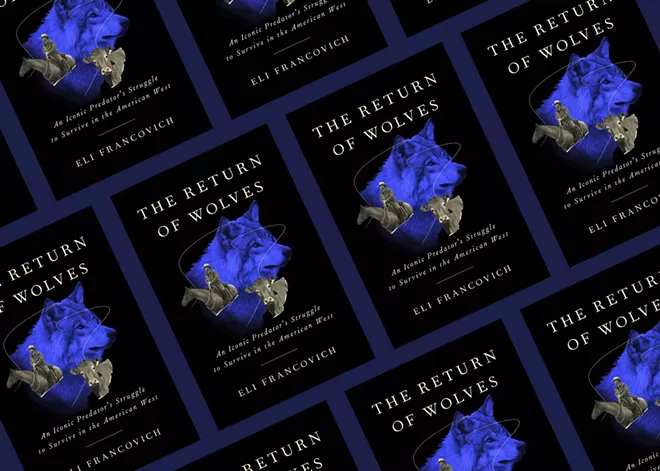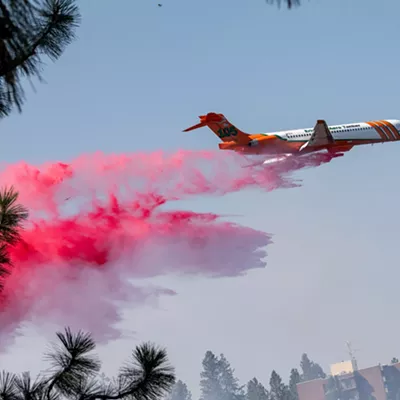Just a few decades ago, wolves were on the brink of extinction.
Seen as wild and untamed creatures threatening livestock, wolves became the target of eradication efforts. Yet others, captivated by the wolves' resilient and elusive nature, fought for the species' reintroduction into the wild.
Today the gray wolf has made a shocking comeback, particularly in Washington state, yet the divide over the species' future remains.
In The Return of Wolves, former Spokesman-Review journalist (and erstwhile Inlander intern) Eli Francovich brings to light the struggles ranchers face in protecting their livestock, advocacy to support wolves' recovery, and stories of those working to protect both wolves and livestock.
The Inlander recently sat down with Francovich to discuss his book and the reintroduction of wolves in Washington state. This interview has been edited for clarity and length.
INLANDER: When did you start covering wolves and their reintroduction at the Spokesman-Review?
Francovich: I became the Outdoors editor at the Spokesman in 2018, I believe it was. Wolf issues anywhere in the country, but particularly in the West and Washington, are very divisive, but also just a great frame for some of the political and social divides that we have going on.
When did you realize this issue was a bigger story deserving of a book?
Wolves have been written about a lot and written about really well, but a lot of that writing focuses on the biology, ecology or personal experiences with the animals. I hadn't seen a whole lot that looked more at the social and political side of it. That angle of the story was always interesting to me.
I didn't find the right narrative until later in 2019, which is when I met Daniel Curry, who's sort of the main character in my book. It's a nonfiction book, but his story holds it all together. He's a range rider and has a very compelling personal story that connects to all of these various political and cultural things.
When you met Daniel Curry, was there something specific that you felt he or his work encapsulated better than some of the other sources or stories you'd reported on before?
The day I met him, I had spent the whole day with a biologist, a politician and a rancher, and they're great, but they all have their talking points. I met Daniel at the end of that day, and he was just very direct and had this sincerity and integrity about him that was immediately sort of attractive from a storytelling point of view.
Why do you think conversations around wolf issues and reintroduction have become so divided and more of a political talking point?
There's a ton of reasons, but a big one is just the geographic reality. Wolves in the West — and we can talk about Washington in particular — they naturally returned from populations that were introduced in Yellowstone, Idaho and Canada as well, and they came back. Most of those wolves live on the eastern side of the state just because of where they came from, and there's just better habitat, there's fewer people.
You have this geographic setup, the divide between the more urban and culturally liberal side of things that just happens to be a bit more pro-wolf recovery, and then you have the people who are actually living with animals and already feel a bit disenfranchised in terms of political and cultural power.
Do you feel like the divide on wolf recovery issues is continuing to widen?
I think Washington has done a really good job of narrowing that divide, but there's still issues. I think it was last year, there were 12 wolves found poached in Washington, so that's obviously not a great sign. And this is where I hope the book is relevant to people outside of Washington and really throughout the country, but Washington has done a pretty good job of trying to do this complicated balancing act.
What big misconceptions do you hope to teach readers about with the book?
Wolves are not a menace, they're just another animal that's trying to survive. I think that's one of the misconceptions, that somehow they're super dangerous. The flip side of that is that they're some sort of dignified, cuddly animal that just wants to live in a pack, and that's also not true.
What's the main takeaway of The Return of Wolves?
I would hope that it's a reminder to listen and to give people you may not agree with the benefit of the doubt and give them an honest hearing, and by that I mean listen first of all to what they're saying, but then try to understand why it is they're saying that and try to get into their headspace. ♦























